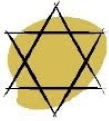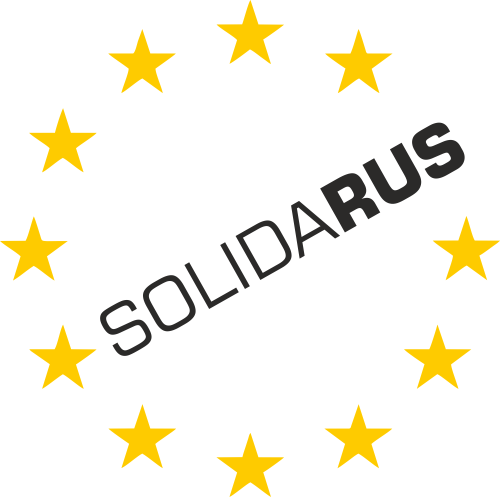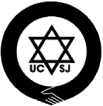The Kremlin’s Political Prisoners: The Case of Jehovah’s Witnesses
The total number of Jehovah’s Witnesses currently being prosecuted for their faith in Russia has reached 206.
The Memorial Human Rights Center (HRC) continues to monitor the unlawful criminal prosecution of Jehovah’s Witnesses. As of October 09, 2019 the Memorial HRC knows of at least 25 new individuals who have been placed in custody, four Jehovah’s Witnesses have been placed under house arrest, and 24 other Jehovah’s Witnesses, who remain free, are being prosecuted for the peaceful practicing of their religion.
As of October 1, 2019 66 Jehovah’s Witnesses in Russia have been recognized as political prisoners. Among them, 38 are in custody and 28 are under house arrest. In addition, at least 140 Jehovah’s Witnesses are prosecuted for politically-motivated reasons, but have not been placed in custody; and the prosecution of three members of Jehovah’s Witnesses ended up by an amnesty or non-custodial sentences. Since the beginning of mass repressions against Jehovah’s Witnesses in April 2018, at least 209 Jehovah’s Witnesses have been prosecuted under the criminal law, and this figure continues to grow.
A relative slow-down in the increase of the Jehovah’s Witnesses held in custody, which was observed in the spring of 2019, has reversed by the fall. At the same time, the release of political prisoners held under house arrest on travel restrictions became less frequent. Therefore, the Memorial HRC can see that the policy of repression against Jehovah’s Witnesses and other religious minorities is becoming more severe in Russia.
A regularly updated list of people prosecuted for belonging to the Jehovah’s Witness faith is available on The Memorial HRC website.
In recent months in the course of two trials of Jehovah’s Witnesses, seven defendants have been sentenced:
On July 4, 2019 the Ordzhonikidze district court in the city of Perm fined Aleksandr Solovyov for 300,000 rubles on charges of “participation in an extremist organization” (Article 282.2, Section 2, of the Russian Criminal Code).
On September 19, 2019 the Leninsky district court in the city of Saratov sentenced six Jehovah’s Witnesses charged with “organizing the activity of an extremist organization” (Article 282.2, Section 1, of the Russian Criminal Code) to various terms in a prison colony from two years to three years and six months. Konstantin Bazhenov and Aleksei Budenchuk were sentenced to three years and six months in a general-regime prison colony; Felix Makhammadiev was sentenced to three years; and Roman Gridasov, Gennady German and Aleksei Miretsky were sentenced to two years in a general regime prison colony. In addition, all those convicted were banned from holding leading positions in NGOs for five years and, after release, were to be on probation for one year. The defendants were detained in the courtroom.
On February 15-17, 2019 at least seven Jehovah’s Witnesses from the city of Surgut (in the Khanty-Mansiisky autonomous district) were tortured while being in detention. The victims reported that they suffered from electric shocks, suffocation and beatings in the building of the regional headquarters of the Investigative Committee in Surgut. An earlier public statement by President Vladimir Putin at a meeting of the Presidential Council on Human Rights, that he didn’t understand why Jehovah’s Witnesses had been prosecuted when, in his words, they are ‘just the same Christians as any others,’ did not prevent the torture of Jehovah’s Witnesses.
Since the beginning of February 2019, two Jehovah’s Witnesses included in the Memorial HRC list were convicted. Both convictions were handed down by the Railway district court in the city of Orel. On February 6, 2019 Danish citizen Dennis Christensen was sentenced to six years in a general regime prison colony; and on April 1, 2019 Sergei Skrynnikov was fined 250 000 rubles.
Almost all of the defendants in those cases have been charged with offenses under Article 282.2, Section 1, of the Russian Criminal Code (facilitation of the activity of a religious organization banned for carrying out extremist activities, punishable by up to 10 years of prison) and several Jehovah’s Witnesses have been charged under Article 282.2, Section 2 of the Russian Criminal Code (taking part in the activity of a religious organization banned for carrying out extremist activities, punishable by up to six years of prison).
The ruling by the Russian Supreme Court of April 20, 2017 designating the Russian Jehovah’s Witnesses as an extremist organization and banning their activities in the country, specifies neither a single instance of Jehovah’s Witnesses committing violations of public order or act of aggression or violence, nor any evidence that their peaceful religious activity threatens the security of the Russian Federation and necessitates measures of suppression. The sole activity of the Jehovah’s Witnesses declared by the Court to be extremist was the dissemination of religious literature previously banned by Russian courts. However, these bans were imposed exclusively on the grounds that, allegedly, Jehovah’s Witnesses incited religious discord and disparaged other religions on the basis of their conviction of the rightness of their own faith – something which is evidently a natural characteristic of any religion (one of the expert assessments on which the ban was based criticized the Jehovah’s Witnesses for their belief that they are chosen by God and for their belief in the Apocalypse).
The Memorial HRC considers the designation of Jehovah’s Witnesses’ organizations as extremist to be unjustified and in violation both of freedom of conscience and the right of association. The criminal prosecution of followers of this peaceful religion is unlawful and discriminatory. The Memorial HRC considers that all Jehovah’s Witnesses held in custody or under house arrest to be political prisoners and urges their immediate release. The Memorial HRC demands that all charges against Jehovah’s Witnesses, on whom other forms of pre-trial restriction have been imposed, be dropped.













